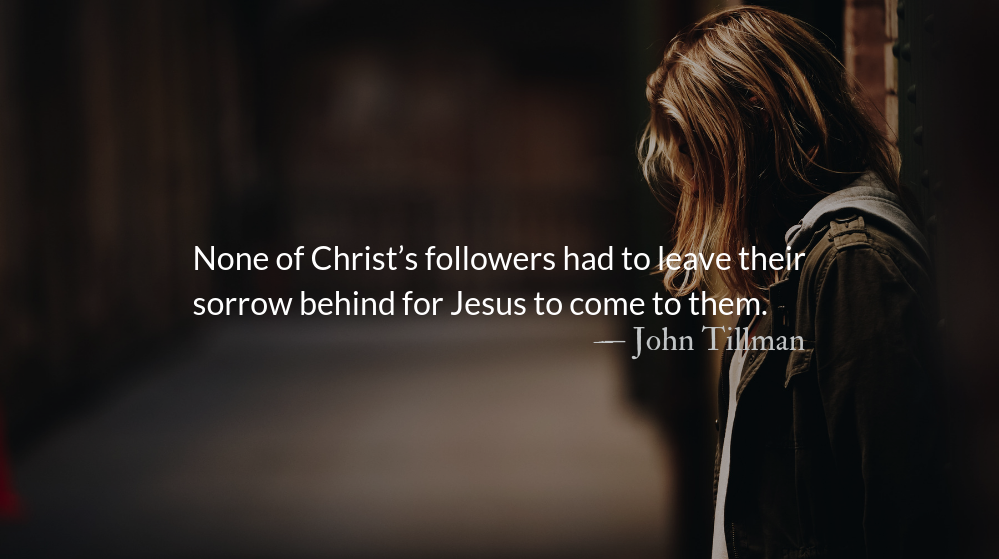Mark 16.6-7
“Don’t be alarmed,” he said. “You are looking for Jesus the Nazarene, who was crucified. He has risen! He is not here. See the place where they laid him. But go, tell his disciples and Peter, ‘He is going ahead of you into Galilee. There you will see him, just as he told you.’”
Reflection: In the Face of Grief
By John Tillman
It is ironic that Christ’s resurrection—a event he directly predicted over and over in the scriptures—is the miracle the disciples seemed the most unprepared for.
They continued with the normal obligations of life. They continued in societal expectations. But inwardly they carried a deep sorrow. And it is in this sorrow that Christ visited them.
Mary’s veil of tears concealed Christ from her, and he parted it by calling her name.
Peter’s experience after the tomb left him doubtful as opposed to convinced. Paul tells us that Jesus appeared to Peter specifically and Peter’s experience on the shore with Jesus after returning to fishing for fish instead of men showed the raw and sensitive reality of his emotional state. Peter’s fear of failing (again) paralyzed him, but Christ re-called him, reinvigorated him, and continued transforming him from Simon to Peter, the Rock.
The disciples on the road to Emmaus were described as downcast. They were headed the wrong direction, too grief-stricken to follow the instruction to travel to Galilee. Jesus enlightened them intellectually and changed their direction and purpose.
Mark’s account gives us the unique detail that the disciples in the upper room were gathered, weeping and mourning before the women reported to them and Christ appeared.
None of Christ’s followers had to leave their sorrow behind for Jesus to come to them.
They didn’t have to defeat their crippling fear before they were worthy of Christ’s presence.
They didn’t have to know the theological answers about why Christ died or where he had been for all this time.
They didn’t have to be in the right place. (Only the encounter after fishing is in Galilee, where Christ, through the women, told the disciples to meet him.)
The resurrected Christ seems to have a special preference for appearing to the grieving. Why then do we seem to assume that this stopped when he ascended?
Every instance of grief in our lives will not be met with the miraculous reversal of a resurrection. But in every instance of grief, we can be assured that Christ will come to us. He will call our name as he did Mary’s. He will seek to transform us he did Peter. He will change our direction and our purpose as he did Cleopas and his companion.
In the face of grief, seek the face of Christ. He is coming to you.
Prayer: The Request for Presence
Show us the light of your countenance, O God, and come to us. — Psalm 67.1
– Prayer from The Divine Hours: Prayers for Springtime by Phyllis Tickle.
Prayers from The Divine Hours available online and in print.
Today’s Readings
Genesis 46 (Listen – 4:47)
Mark 16 (Listen – 2:34)
Thank You!
Thank you for reading and a huge thank you to those who donate to our ministry, keeping The Park Forum ad-free and enabling us to continue to produce fresh content. Every year our donors help us produce over 100,000 words of free devotionals. Follow this link to support our readers.
Read more from Remember Jesus Christ
Remembering the good news of the risen Christ provides perspective for our lives. Remembering the resurrection also recalls Christ’s suffering and reminds us that we may experience suffering, too.
Read more about Recalling the Failures
The disciples are slow to believe and understand what has happened, even after seeing Jesus alive. The resurrected Jesus is patient with them…he slowly and lovingly works to overcome their doubts and fears and reissue his call on their lives. And he is lovingly patient with us as well.











